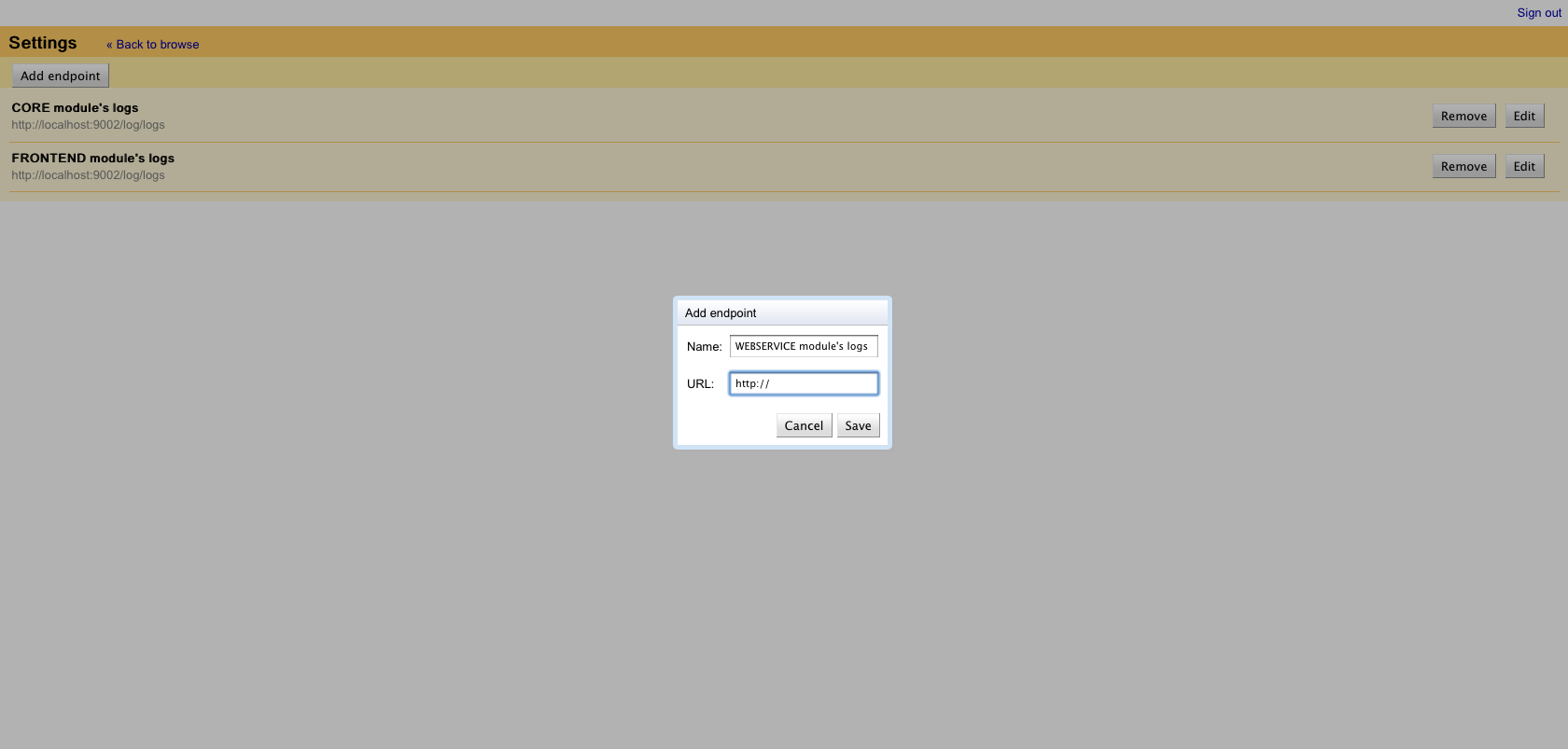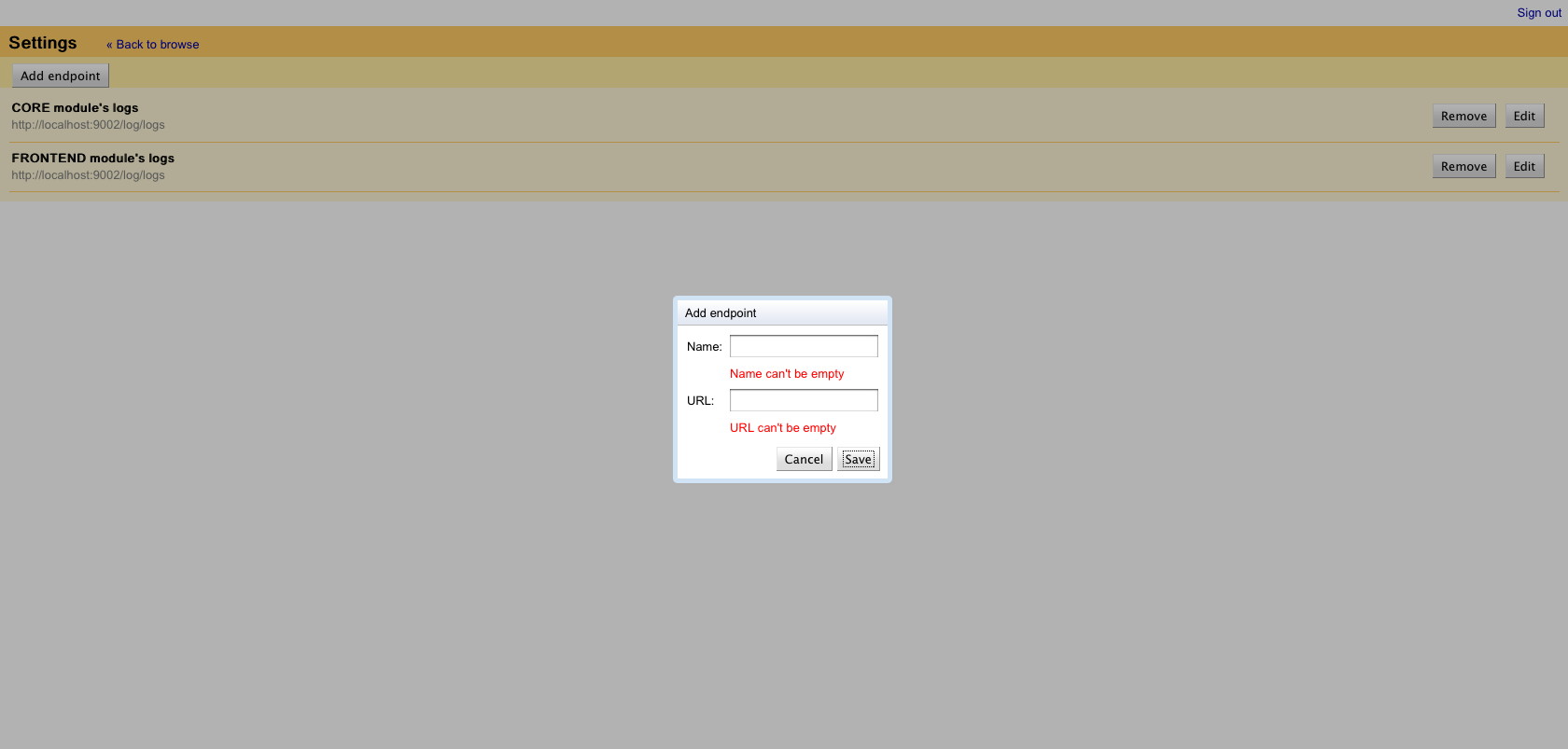LogBrowserThis feature is available from 2.3.0 only, as part of the cxf-rt-management-web component LogBrowser is log entries viewer. It is rich internet application which can be embedded in your web application. Configure what log entries you would like to see and view them in your favorite browser. Anytime, anywhere without using console. Let's make brief overview how to configure LogBrowser inside your application. Documentation For more information about LogBrowser go to software requirements specification (SRS) or system architectural design (SAD) documents. Screenshots
Configuring LogBrowser application in container without SpringStep 1Add pom.xml
<project>
[...]
<dependencies>
[...]
<dependency>
<groupId>org.apache.cxf</groupId>
<artifactId>cxf-rt-management-web</artifactId>
<version>2.3.0</version>
</dependency>
[...]
</dependencies>
[...]
</project>
Step 2Add new class to your project, LogBrowserApp.java
package yourpackage;
import java.util.Collections;
import java.util.HashMap;
import java.util.HashSet;
import java.util.Set;
import javax.ws.rs.core.Application;
import javax.ws.rs.ext.Provider;
import org.apache.cxf.jaxrs.provider.AtomEntryProvider;
import org.apache.cxf.jaxrs.provider.AtomFeedProvider;
import org.apache.cxf.management.web.logging.atom.AtomPullServer;
import org.apache.cxf.management.web.logging.logbrowser.bootstrapping.BootstrapStorage;
import org.apache.cxf.management.web.logging.logbrowser.bootstrapping.SimpleAuthenticationFilter;
import org.apache.cxf.management.web.logging.logbrowser.bootstrapping.SimpleXMLSettingsStorage;
@Provider
public class LogBrowserApp extends Application {
Set<Object> classes = new HashSet<Object>();
static {
AtomPullServer aps = new AtomPullServer();
aps.setLoggers("yourpackage:INFO");
aps.init();
classes.add(aps);
classes.add(new AtomFeedProvider());
classes.add(new AtomEntryProvider());
classes.add(new BootstrapStorage(new SimpleXMLSettingsStorage()));
classes.add(new SimpleAuthenticationFilter(new HashMap<String, String>() {
{
// add all required users by specified username and password, for example: put("admin", "admin");
}
}));
classes.add(new BootstrapStorage.StaticFileProvider());
classes.add(new BootstrapStorage.SettingsProvider());
}
@Override
public Set<Class<?>> getClasses() {
return Collections.emptySet();
}
@Override
public Set<Object> getSingletons() {
return classes;
}
}
We have to modify newly created class a little bit:
Step 3Add new servlet definition to your web.xml <web-app> [...] <servlet> <servlet-name>LogBrowserApp</servlet-name> <display-name>LogBrowserApp</display-name> <servlet-class> org.apache.cxf.jaxrs.servlet.CXFNonSpringJaxrsServlet </servlet-class> <init-param> <param-name>javax.ws.rs.Application</param-name> <param-value>yourpackage.LogBrowserApp</param-value> </init-param> <load-on-startup>1</load-on-startup> </servlet> <servlet-mapping> <servlet-name>LogBrowserApp</servlet-name> <url-pattern>/log/*</url-pattern> </servlet-mapping> [...] </web-app> Go to line 13 and replace Step 4Rebuild and run your application. Step 5Open browser and go to URL: http://localhost:9002/log/bootstrapstorage/resources/LogBrowser.html Step 6Add new endpoint with URL: http://localhost:9002/log/logs Congratulation. Now you can easily view log enties using LogBrowser. Complete sample For more details about configuration go to sample project. |







